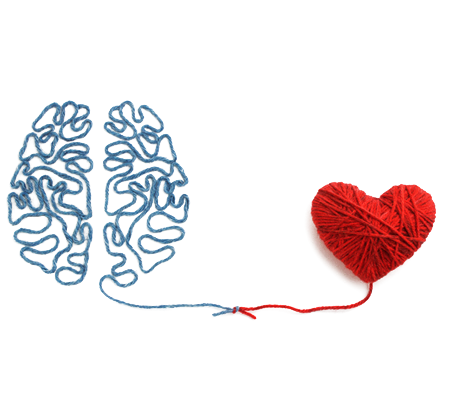 People like to say that teenagers are the moody ones…
People like to say that teenagers are the moody ones…
But it really doesn’t matter what phase of life you’re in… sometimes your emotions can (and will) wreak havoc with you.
Maybe it’s Sunday afternoon, and you feel your chest tighten as you start worrying about your week. Or you get constructive criticism at work that pierces your heart like an arrow, bypassing all the emotional armor you’ve tried to build up over the years.
Or perhaps you feel your emotions starting to get the better of you in your relationship with your partner, and you find yourself losing your temper about everything, even how they load the dishes in the dishwasher.
I could write an entire book on the things I DIDN’T learn in school…
And at the top of the list would be how to deal with emotions. We’ve all got them. What do you do when you get dumped by a girlfriend or boyfriend and feel yourself sinking into a pit of sadness? Or when everything annoys you? You know you have them, feel like you shouldn’t, and you’ve got no idea what to do when they show up.
Your parents, teachers, and friends don’t quite seem to get what it’s like to be you. If anything, they just suggested you stop feeling that way. Didn’t they know if it were that easy, you would have figured it out by now? So you went through life thinking, “Maybe I’m the only one that feels this way.” But it’s not just you.
Feelings can be uncomfortable and scary, and we try to avoid them unless they’re emotions like happiness or excitement. We should all take a class on emotions when we’re in high school. (Did we really need to re-learn some dry historical facts for the 10th time instead of something useful like managing your feelings?)
 You can tame your emotions, but the first step is to understand them.
You can tame your emotions, but the first step is to understand them.
Unlike your school teachers, I’m going to give you some essential lessons about your feelings.
An incredible researcher and psychologist named Paul Ekman traveled the globe, trying to understand the common emotions that cut across cultures and how they were expressed.
He identified SEVEN common human emotions (even among groups that lacked written language!):
Happiness, sadness, anger, fear, surprise, disgust, and contempt
Our feelings carry data…
Emotional Intelligence refers to our ability to understand and manage the feelings of both ourselves and others. Accordingly, all feelings communicate something to us.
For example, if you feel angry at your boss asking you to stay late, the emotion of anger gives you the information that one of your boundaries has been violated.
Think of it this way: Emotions are like the pain you feel when you touch a hot stove. It’s not pleasant, but without it, we would never learn a valuable lesson about ourselves.
So, instead of just trying to get rid of feelings, it’s essential to understand what they’re trying to tell us.
All feelings eventually end.
As an adolescent, I remember wishing that I could get rid of my feelings.
The pain of rejection from a girl…
The anxiety before a presentation…
The sadness at losing a friendship…
I knew these were uncomfortable, and I just wanted them gone.
I frequently ask my clients, “Have you ever had a feeling that never stopped?” I’ve never had a client who answered, “Yes.”
Now, you probably have feelings that show up a lot in your life. And, to be sure, you’ve had feelings that have lasted a long time. But you’ve probably never felt sad without any break in the emotion. You may have been sad for a long time, but you probably saw a funny meme or TV show that took you out of it for a little while. And you probably had some feelings that diminished over time.
So, the good news is: Nothing is permanent… even feelings.
 Thoughts and feelings aren’t totally separate.
Thoughts and feelings aren’t totally separate.
We’ve all heard variations on the myth that logical and emotional thoughts are separate. Maybe you’ve been told you’re a lot like Mr. Spock (logical). Or perhaps you have a friend who goes on and on about being “right-brained” (emotional).
We’re taught that the two sides of ourselves operate in isolation. However, that’s simply not true. Louis Cozolino, a noted neuroscience researcher, says that a healthy brain is one that is integrated. That is to say, a healthy brain is one in which logical thought informs emotion… and emotion informs logical thoughts.
Emotions can be educated, and we need emotions to temper and instruct our logic.
What to do with this information on emotions?
The simple answer is this: The next time you have strong feelings, stop and ask yourself, “What insight do my feelings have to share with me today?”
Don’t forget to thank your feelings, either. They can be a pain sometimes, but without them, we’d miss out on so much.
If you want to start exploring other ways to get to know your feelings, we would love to help you with that.
Give us a call today, and let’s schedule your free 15-minute consultation: (469) 225-0344.

